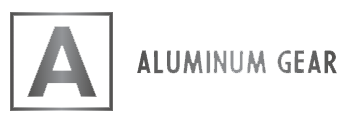A rack and pinion system is used to transform rotary motion into linear movement and vice versa. A round spur equipment, the pinion, meshes with a spur gear which has teeth occur a straight series, the rack. Rack and pinion gears are accustomed to convert rotation into linear movement. An ideal example of  this is actually the steering program on many cars. The tyre rotates a gear which engages the rack. As the gear turns, it slides the rack either to the right or left, depending on which way you switch the wheel.
this is actually the steering program on many cars. The tyre rotates a gear which engages the rack. As the gear turns, it slides the rack either to the right or left, depending on which way you switch the wheel.
A rack and pinion program gives the ability to transfer rotary to linear motion, with all the accuracy expected of a geared program.
The racks are produced from ground, hardened stainless or ground stainless steel and available with a selection of Spur Gear Rack accuracies, pitches, and lengths, plus the facility to provide modifications such as for example flats, journals or custom ends. Hobbed stainless steel and brass racks are also obtainable. The rack pinions are ordinary or anti-backlash, also with a choice of accuracies, pitches, bore sizes, alternative materials and coatings.
Floor rack can be utilized for both measurement and actuation. In general small pitches (1 mm) match measurement as small pinion diameter provides higher linear resolutions. The larger pitches (2 mm and 2.5 mm) allow for an increased load capacity. For some applications the rack can be utilized for both the opinions and the actuation; however in very exact applications it is best to us a non-drive section of the rack for opinions, alternatively another rack can be used. Hobbed rack are more suited to light actuation applications where cost is a key consideration.
You can expect three types of rack – rectangular, solid circular and tubular rack. Rectangular rack are used when the application needs the rack to end up being stationary and the rack pinion provides the element of motion. Our rectangular racks are used in combination with a motor, slide and carriage for example in the printing sector for the actuation of paper trimming knives in a printing press. Circular rack are a more versatile alternative, in regards to to mounting, utilized for instance in XY phases. The tubular racks enable the passage of liquids, fibre-optics, gasses etc, making them well suited for medical and scientific applications, such as laboratory automation pick and place mechanisms.
Round racks are ideal for linear actuators in accurate automation applications . Tubular racks are especially useful for medical and scientific applications, where in fact the hollow shaft permits the passage of fluids, fibre optics and gases.
